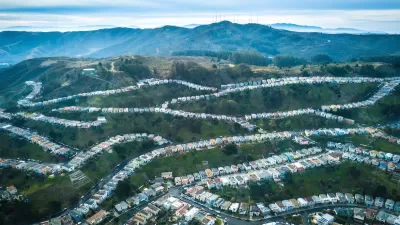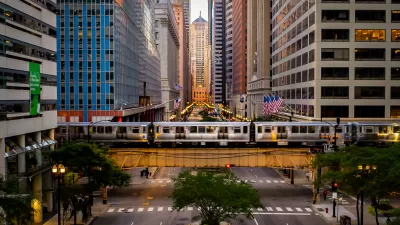Since the July 2013 derailment and explosion of an oil train in Lac-Mégantic, Quebec* killed 47, Canada has contributed C$155 million toward the rebuilding effort because the railroad's insurance was insufficient.
Canadians were reminded of the hazards of transporting volatile crude-by-rail when a 100-car, Canadian National Railway Co. oil train derailed and and exploded in a wooded section of Ontario less than two days before a 109-car CSX train derailed and exploded in West Virginia on February 16.
To ensure that future damage caused by these derailments be fully funded, "Canada said it would create a compensation fund to cover the potential costs of oil-train derailments and finance the move with a new levy on crude shippers," writes Paul Vieira of The Wall Street Journal, and increase the minimum insurance required by major haulers of oil.
Crude shippers will have to pay 1.65 Canadian dollars ($1.32) per metric ton of crude oil carried, Canadian Transport Minister Lisa Raitt said...The minimum required insurance for companies carrying more than 1.5 million metric tons of crude annually is C$1 billion—affecting the country’s two biggest railroads, Canadian National Railway Co. and Canadian Pacific Railway Ltd."
"Montreal Maine and Atlantic Railway, which operated the train that derailed in Lac-Mégantic, had C$25 million in coverage, writes Vieira. "The Quebec government has said in court documents it expects to spend up to C$409 million for cleanup and rebuilding purposes..."
According to "Greg Stringham, a vice president at the Canadian Association of Petroleum Producers, the levy... amounts to about 25 cents a barrel," writes Vieira.
The shipper fee is not permanent—it is meant to build up a compensation fund of C$250 million. Heretofore, only the railways were liable for damage caused by oil spills and explosions.
The Railway Association of Canada, a lobby group, said the industry supports the idea of having more stakeholders share in the costs associated with rail accidents involving dangerous goods, “but the regime can be improved by including other dangerous goods in the compensation fund right away.”
Vieira reminds us of the explosive growth in crude-by-rail shipments in Canada: "The amount of crude moving by rail in Canada has quadrupled since 2012, and is forecast to more than triple, to 700,000 barrels a day, between now and 2016. Rail has become an attractive option due to a lack of pipeline infrastructure." However, he closes his piece by writing that most "crude in Canada is shipped via pipeline."
Correspondent's note: Subscriber-only content to The Wall Street Journal article should be available to non-subscribers for up to seven days after Feb.21.
*Corrected February 24, 2014.
FULL STORY: Canada Unveils an Oil-Train Safety Tax: Funds would be used for cleanup costs of crude derailments

Depopulation Patterns Get Weird
A recent ranking of “declining” cities heavily features some of the most expensive cities in the country — including New York City and a half-dozen in the San Francisco Bay Area.

California Exodus: Population Drops Below 39 Million
Never mind the 40 million that demographers predicted the Golden State would reach by 2018. The state's population dipped below 39 million to 38.965 million last July, according to Census data released in March, the lowest since 2015.

Chicago to Turn High-Rise Offices into Housing
Four commercial buildings in the Chicago Loop have been approved for redevelopment into housing in a bid to revitalize the city’s downtown post-pandemic.

New Park Opens in the Santa Clarita Valley
The City of Santa Clarita just celebrated the grand opening of its 38th park, the 10.5-acre Skyline Ranch Park.

U.S. Supreme Court: California's Impact Fees May Violate Takings Clause
A California property owner took El Dorado County to state court after paying a traffic impact fee he felt was exorbitant. He lost in trial court, appellate court, and the California Supreme Court denied review. Then the U.S. Supreme Court acted.

How Urban Form Impacts Housing Affordability
The way we design cities affects housing costs differently than you might think.
City of Costa Mesa
Licking County
Barrett Planning Group LLC
HUD's Office of Policy Development and Research
Mpact Transit + Community
HUD's Office of Policy Development and Research
City of Universal City TX
ULI Northwest Arkansas
Town of Zionsville
Urban Design for Planners 1: Software Tools
This six-course series explores essential urban design concepts using open source software and equips planners with the tools they need to participate fully in the urban design process.
Planning for Universal Design
Learn the tools for implementing Universal Design in planning regulations.



















